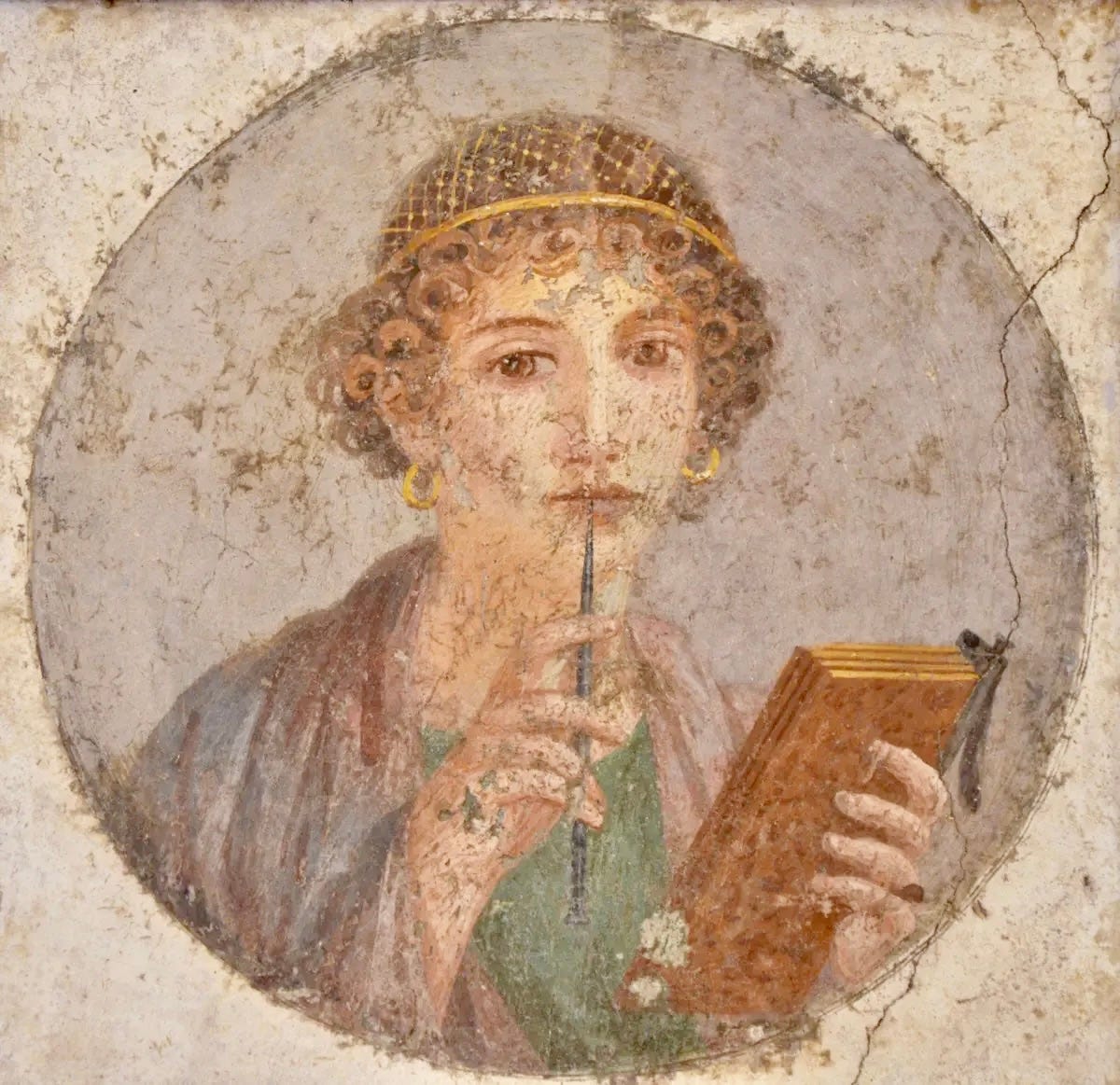It’s hard to encounter women’s own voices from Greek and Roman antiquity. When we appear to do so, there is often scholarly doubt about their genuineness. However, the half dozen skilfully composed poems in elegiac metre attributed to Sulpicia, though found in the manuscripts of the poet Tibullus, are widely considered to be the work of an aristocratic woman who lived and wrote in Rome in the late first century BCE.
The poems describe a real love affair with a man given the pseudonym Cerinthus, using poetic tropes that are familiar from the elegiac love poetry of Sulpicia’s contemporaries, Tibullus, Propertius and Ovid. I give here my translation of the first of the poems, which introduces the affair with the statement that the Venus has granted the poet a lover worthy of her (and her pen), prompting her to be more open about her love than hitherto, and allowing her to provide poetry for the enjoynent of others not in her position.
The lovely image above of a sophisticated woman comes from Pompeii and is dated to the first century AD. Although sometimes said to represent the Greek poet Sappho, the fact that woman holds a pen (stylus) tells against it. It’s more likely to represent Sulpicia holding the stylus and the tablet she speaks of containing her poems.
At last love’s come, and it would bring more shame to hide it than to see it clear confessed. Moved by my Muses’ prayers, the Love Goddess has brought me love and laid him on my breast. Venus has kept her word; and anyone who lacks such pleasures, let them tell of mine. I'd not entrust a word to tablets sealed, that no one should before him read a line: but I delight in passion, and I’m tired of coyness: let our worthy love seem fine!
Tandem venit amor, qualem texisse pudori
quam nudasse alicui sit mihi fama magis.
Exorata meis illum Cytherea Camenis
attulit in nostrum deposuitque sinum.
Exsolvit promissa Venus; mea gaudia narret,
dicetur si quis non habuisse sua.
Non ego signatis quicquam mandare tabellis,
ne legat id nemo quam meus ante, velim:
sed peccasse iuvat, vultus componere famae
taedet: cum digno digna fuisse ferar.(With thanks to Jonathan Hadfield for prompting me to post about Sulpicia, and to Fabian Hubach for making me revise the opening couplet)





She is beautiful. And these words reach through the ages. Thank you for posting that.